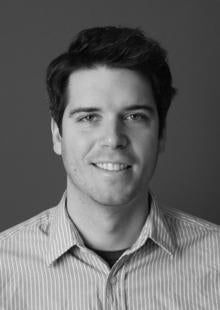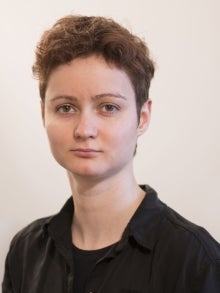We have been fortunate over the past several months to have some amazing new talent join the University of Waterloo and The Water Institute. A sincere welcome and we look forward to opportunities to collaborate!
 Grant
Gunn
Grant
Gunn

Assistant Professor, Faculty of Environment, Department of Geography and Environmental Management
Grant Gunn's main research interests aim to improve the retrievals of physical components of the Cryosphere, including permafrost (active layer thickness, timing of thaw/refreeze) and ice parameters in sub-Arctic and Arctic environments. His research applies emerging technologies including: airborne/spaceborne synthetic aperture radar, high-performance cloud computing (ex. Google Earth Engine), interferometry, polarimetric decomposition, thermodynamic modelling, and the collection of field variables to validate these remote observations.
He is currently interested in the application of these methods in tundra and boreal regions where small lakes and ponds are numerous providing significant ecosystem services to local communities through fishery/game habitat and winter transportation corridors. He approaches research questions incorporating field observations and modelling efforts to improve the understanding of the interaction of microwaves with physical features of the lake system, thereby providing the ability to retrieve and monitor permafrost and ice properties, furthering the ability to assess how the frozen regime will change in the future.
 Anna
Klinkova
Anna
Klinkova

Assistant Professor, Faculty of Science, Department of Chemistry
Anna Klinkova’s research is focused on developing efficient synthetic approaches to advanced nanomaterials for applications in alternative energy and catalysis. Her goal is to gain a systematic understanding of the effects of nanoparticle shape and surface chemistry on their physicochemical properties relevant to carbon dioxide conversion into fuels and chemical feedstocks, catalytic hydrogen production, enantioselective catalysis, and light harvesting in solar cells.

Rebecca
K.
Saari

Assistant Professor, Faculty of Engineering, Department of Civil and Environmental Engineering
Rebecca Saari studies the consequences of climate change and climate policy on human health and environmental inequality. She has 11 years of post-graduate experience in air pollution and air quality modelling at the University of Toronto (2), AECOM (3), Environment and Climate Change Canada (1), and MIT (5). As a professional air quality engineer in Ontario, she completed projects in seven Canadian provinces and territories. She has employed economic models, emissions models, atmospheric chemical transport models, and health response models to assess the costs and co-benefits of climate policy, energy policy, and transportation policy. She has been invited to speak at Harvard University, the University of Toronto, Carleton University, North Carolina State University, and the University of Washington. Her work has been published in Nature Climate Change, and covered in over 16 news outlets including CBC, NBC, and the New York Times. She directly informs policy through invited presentations to state-level policymakers and the U.S. EPA Climate Change Division, and she was cited in an amicus brief submitted by leading climate scientists to the D.C. Circuit Court evaluation of the U.S. Clean Power Plan – the Obama Administration's centrepiece climate policy.